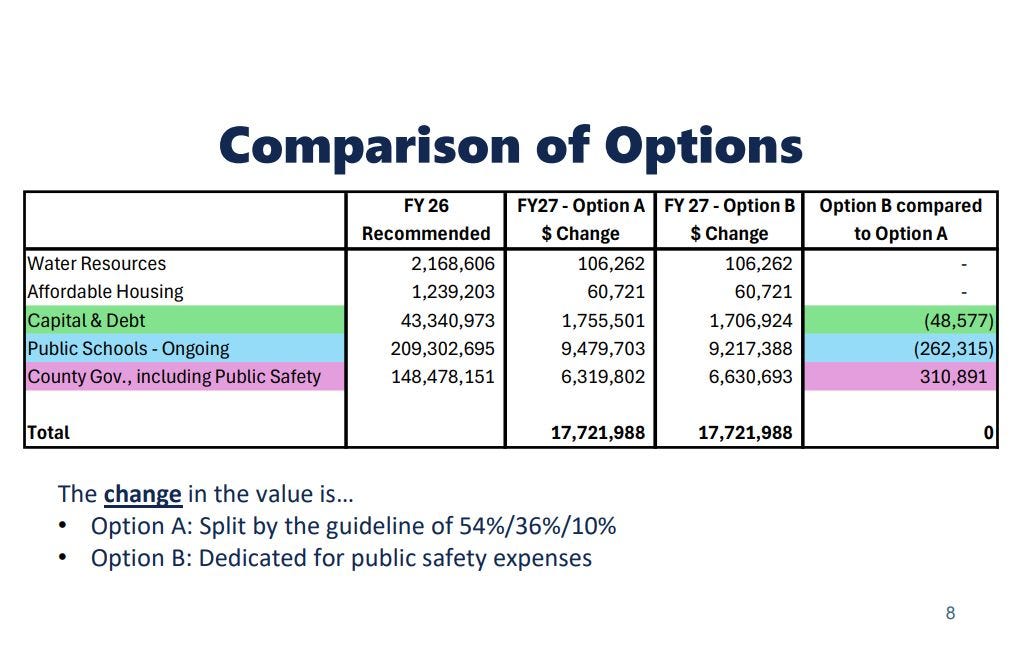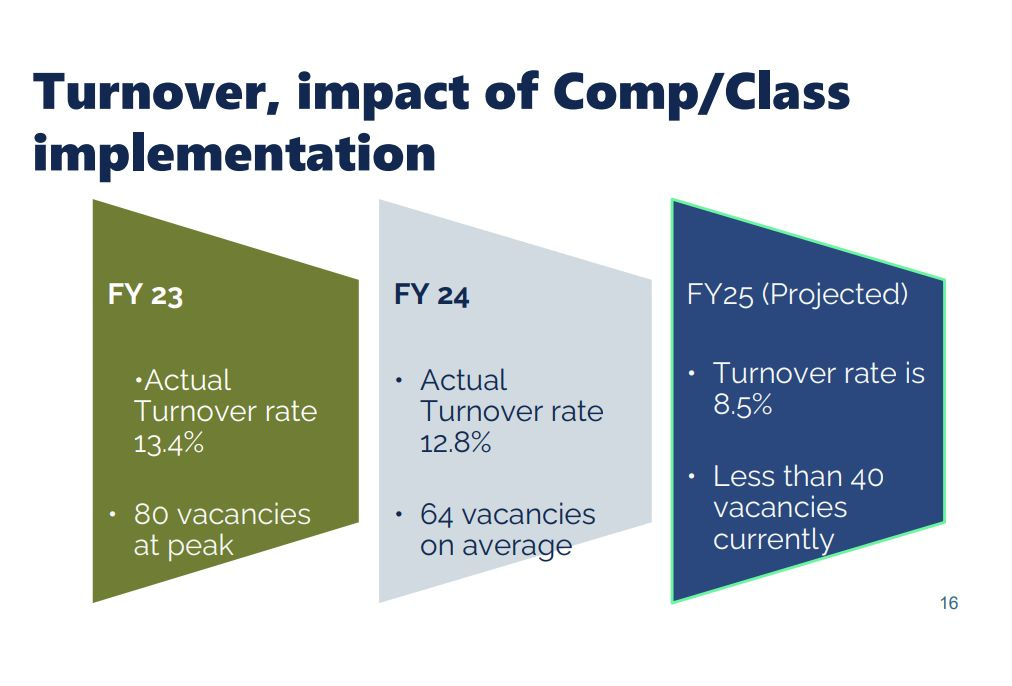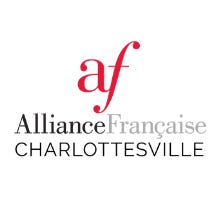March 22, 2025: U.S. Environmental Protection Agency cancels $460K grant for Climate Resilience Cohort
Plus: Three other stories about Albemarle’s proposed budget for FY2026
If you are scheduled to travel back in time today to Charlottesville in 1895, please be informed that the stereopticon entertainment scheduled for ths evening under the auspices of the Central City Council Jr. O.U.A.M. will not be performed. I have a copy of the Daily Progress from that day which informs us it has been “postponed on account of the illness of the gentleman who has charge of the exhibition.”
Stereopticons were also known as magic lanterns and this edition of Charlottesville Community Engagement will have more information but will not be able to report on whether the entertainment ever took place. I’m Sean Tubbs, and I’d like to point out that the Progress spelled it “stereoptican” and they didn’t go out of business.
In this edition:
The U.S. Environmental Protection Agency cancels a grant awarded to Albemarle County during the Biden administration
The seventh president of the University of Virginia has died after a small bout with cancer
Two area high school students will complete in a national science fair this May after their research won them a Grand Award at this week’s Virginia Piedmont Regional Science Fair
Albemarle County Supervisors continue their review of the FY2026 budget with briefings on salary increases, climate funding, and how proceeds from a tax rate increase this year should be spent in FY27
First shout-out: Alliance Française de Charlottesville
The Alliance Française de Charlottesville promotes the French language and francophone culture through educational and cultural programs. Visit the Alliance Française website to learn more about group classes, private lessons, cultural events, and social activities for both kids and adults.
EPA climate resilience grant for community nonprofits rescinded
The ongoing dismantling of the federal government by the current presidential administration is disrupting government at all levels. The Albemarle Board of Supervisors learned at their March 12, 2025 budget work session about one way the county will be affected.
“One of our grants awarded by the [United States Environmental Protection Agency] is going to be rescinded by the federal government,” said Andy Bowman, Albemarle’s assistant chief financial officer.
Albemarle County had been awarded funding through the Environmental Justice Government-to-Government grant for a project called the Climate Resilience Cohort.
“The Climate Resilience Cohort is a community engagement initiative to partner with community-based organizations (CBOs) that serve disadvantaged or vulnerable community members in Albemarle County and the City of Charlottesville,” reads a section of the Engage Albemarle website.

The project was to last three years and organizations were asked to submit applications for funding. The Trump administration is seeking to eliminate the concept of “environmental justice” and is implementing other funding cuts based on ideology and a belief that the executive branch does not have checks and balances.
While legal fights continue, the termination of a grant means that Albemarle will not have available to continue an ongoing program.
“Still learning and working through this, but it appears that any cost expended to date we will be able to recover and get those reimbursed,” Bowman said. “There will not be a loss of funding the county has spent to date, but the remaining Grant which totaled $460,000.”
In a sign of how haphazard the White House agency known as the Department of Governmental Efficiency is, the EPA’s website for the government to government program is still active.
Bowman said that the $460,000 grant was in the early stages of implementation.
Greg Harper, Chief of Environmental Services, said they would be discussing the future of the cohort internally.
“I hate to see this one go,” said Supervisor Jim Andrews.
Supervisor Ned Gallaway suggested that the county publicly document the impacts of a federal government that has decided to wind down much of its existence.
“I would think for our own sake and for our community members sake, we should start a little federal Fed grant cut tracker,” Gallaway said.
Continue reading for more coverage in this newsletter on Albemarle’s FY2026 budget. For new readers, you can catch up on nearly four years worth of stories on Information Charlottesville.
Area students take top prizes at Virginia Piedmont Regional Science Fair
The world around us is powered by scientific discoveries made by millennia of curious people who just wanted to know how things work.
To power and fuel innovation, the concept of the science fair was invented in the 1930’s in New York City as a way of encouraging young people to choose a career in innovation.
The tradition continues nearly a century later and this week two students who live in the area were awarded top prizes at the Virginia Piedmont Regional Science Fair held on March 20.
Mia Heller is an 11th-grade student at Mountain Vista Governor’s School in Warrenton who won a Grand Award for a project called Micro-Magnetism: Using an Oil-Based Ferrofluid to Remove Microplastics from Drinking Water.
Micah Appiah is a 9th-grade student at Albemarle High School who receive a Grand Award for a project called Insights into a Novel Electrostatic Motor Design for Electric Vehicles and Other Applications.
“We are incredibly proud of Mia and Micah for their dedication, creativity, and hard work,” said Adrian Felts, Director of the Virginia Piedmont Regional Science Fair in an information release. “Their projects address real-world challenges and exemplify the spirit of scientific inquiry. We look forward to seeing their contributions recognized on an international stage.”
Both will now represent Virginia for a competition called the International Science & Engineering Fair (ISEF). That will be held in May in Columbus, Ohio.
A story about a science fair needs some information about the underlying science. Let’s start with Heller.
“Heller’s research aims to develop an effective method for removing harmful microplastics from water sources using ferrofluid technology,” Heller said.
Ferrofluid is a liquid that attracts to the poles of a magnet and were invented in the 1963 by the National Aeronautics and Space Administration for use in rocket fuel. They have many applications including use to keep hard disks spinning, cooling loudspeakers, and to visualize sound.

Felts said Appiah’s work presents an innovative approach to improving electric motor efficiency.’
“His work has potential applications in advancing sustainable transportation and other energy-efficient technologies,” Felts said.
Electrostatics is a subset of physics in which scientists study stationary or slow-moving electric particles. An electrostatic motor is based on the attraction and repulsion of electric charges. The first ones were developed in the 1740’s and 1750’s according to Wikipedia. Learn more so you can get a glimpse of the future!
(This story was updated on March 23, 2025 because one of the students was identified as living in a different community. I regret the error!)
Former UVA president Casteen dies
The seventh person to serve as the President of the University of Virginia died this week at the age of 81.
John T. Casteen III served in the role from 1990 to 2010 before retiring from administration, though he continued to teach.
“John Casteen is simply inseparable from the story of UVA,” said current president Jim Ryan in an article published by UVA Today. “John will be remembered as an ambitious, wise and devoted leader whose legacy will endure at the University of Virginia.”

When Casteen began his tenure, the UVA endowment was at $488 million and increased to $5.1 billion. A reason to raise that much money was to protect UVA from cuts from the Commonwealth of Virginia.
Casteen himself entered as an undergraduate at the age of 17 and earned three degrees in English. After a period of teaching at the University of California, Berkeley, Casteen came back to Charlottesville to become dean of admission in 1975. In 1982 he was appointed to serve as the Virginia Secretary of Education and left that position in 1985 to serve as president of the University of Connecticut.
The AccessUVA program formed under Casteen’s watch. In lieu of flowers, his family has asked people consider a donation to the financial aid program.
Second shout-out: Camp Albemarle
Today’s second subscriber-supported public service announcement goes out to Camp Albemarle, which has for over sixty years been a “wholesome rural, rustic and restful site for youth activities, church groups, civic events and occasional private programs.”
Located on 14 acres on the banks of the Moorman’s River near Free Union, Camp Albemarle continues as a legacy of being a Civilian Conservation Corps project that sought to promote the importance of rural activities. Are you looking to escape and reconnect with nature? Consider holding an event where the natural beauty of the grounds will provide a venue to suit your needs. Visit their website to view the gallery and learn more!
Albemarle Supervisors briefed on climate funding, pay increases, and future direction for FY2027
Today is the first regular newsletter for hundreds of new subscribers who have joined the audience. Many of the stories you’ll read are generated through recordings of government meetings. One of the priorities of this newsletter is to write about local budgets and how they are put together. That means traveling back in time to meetings that have already happened.
Albemarle County Supervisors will not take a final vote on their budget until later this spring but have already decided on tax rates to advertise for an upcoming public hearing required by state law.
For the benefit of new readers, here’s some of the story as written by this reporter so far. Links go to Information Charlottesville, the archive site for this newsletter.
Richardson proposes four cent real estate tax increase for Albemarle’s FY26 budget with most of that revenue going to cover fire and EMS personnel (learn more)
Many people weigh in on Albemarle’s recommended budget at first public hearing (learn more)
An account of Albemarle County’s first work session on the FY2026 budget (learn more)
Albemarle budget staff provide broad overview of where $480.5 million in spending will go in FY26 (learn more)
Albemarle’s police chief and fire chief explain why they need additional funds (learn more)
That’s up through March 10, 2025. Since then there have been three more work sessions and two town hall meetings. More are to come in the future and I believe that people should have an account of what’s happening especially given that Albemarle Supervisors likely won’t approve their minutes for those work sessions for at least a year.
What follows comes from the March 12, 2025 work session. The top story, too. I’m working on a Saturday because I really wanted to get that one out here.
Early direction for FY27?
The proposed budget for fiscal year 2026 recommended by Albemarle Executive Jeffrey Richardson is based on a four cent increase in the real property tax rate.
For fiscal year 2026, 80 percent of the new revenue raised will go toward public safety to pay for the cost of recently higher fire and rescue personnel as well as to hire six more police officers. Ten percent will go to affordable housing and ten percent goes to Albemarle County Public Schools.
The first question before the Board of Supervisors at their work session on March 12 was to provide direction on whether that formula should continue into the next fiscal year or whether something different should happen.

While elected officials can only make binding decisions on the current or next fiscal year, Albemarle budget staff have a five-year financial plan that helps track long-term planning. In this case, staff wanted an indication of how much money that would create for the five-year capital improvement program.
At this point, a decision had not yet been made about what rate to advertise and at least two Supervisors were not ready to give direction.
“I gotta think this through some more,” said Supervisor Ned Gallaway. “Plus I want to hear how, what reactions we get when we go out to the public and things like that as well.”
In the past, Supervisors can designate that revenue from a fraction of a cent can go toward a specific purpose. For instance, in 2014, the Board earmarked $0.07 to go to the county’s water resources fund. Supervisor Diantha McKeel said a decision about what to do in FY2027 might be better informed after a study is conducted on the county’s long-term public safety needs.
“Going back to that study is really going to be critical because that would inform this decision is what in my brain,” McKeel said.
However, McKeel is not running for re-election and will not be around for next year’s discussion.
Supervisor Ann Mallek said at one point there had been property tax revenue for the the county’s Acquisitions of Conservation Easement program (ACE) but that was eliminated during the last recession.
Paying for people
The biggest item that local governments spend money on is in salaries and benefits for the people who do the work. Like any industry, localities compete for talent and both Albemarle County and Charlottesville have taken steps in recent years to try to retain personnel.
“The compensation philosophy for Albemarle county is to attract and retain quality employees while maintaining internal equity and external market competitiveness,” said Kristy Shifflet, chief operating officer in Albemarle County.
Shifflett said staff will receive a three percent cost of living increase, matching what the Commonwealth of Virginia will pay for positions it funds directly. This will cost $2.8 million.
Public safety employees will get another two percent increase, costing another $700,000.
“Starting pay for police officers and firefighters at entry level and this is just with no stipends or anything else, is $53,040 right now,” Shifflett said. “And that will move to $54,631.”

Spending on climate
At the public hearing on March 5, several speakers called for more spending to be made on climate action initiatives with one organization seeking $1 million in direct funding.
At the March 12 work session, assistant chief financial officer Andy Bowman gave an overview of what is in the recommended budget. He presented an image showing programs that are funded each year, examples of use of one-time money, as well as capital funding for projects.

Bowman said on-going funding includes the environmental services division which will be funded at $564,000 in FY2026.
“A pretty significant portion of that funding is about $100,000 annually for them to have operational flexibility to support various climate initiatives on a year to year basis,” Bowman said.
Albemarle also covers the operational cost of the Southern Convenience Center operated by the Rivanna Water and Sewer Authority. Bowman said the county has used surplus funding to help match a grant from Dominion Energy to build electric vehicle charging stations at the county’s office building at 401 McIntire Road.
“And we also have the Community Climate Action Program that's been in place for two years,” Bowman said. “There's been $100,000 each year where the county will receive applications from local groups to help those implement new climate strategies.”
If you want to see where those grants went, two stories for you:
Albemarle County awards first set of climate protection grants, August 5, 2023
Albemarle awards $100K in five more Community Climate Action grants, September 12, 2024
Bowman said there is a $250,000 reserve available to staff in the environmental division to implement programs. The FY26 budget also anticipates using $350,000 in one-time funds to a program to help property owners with septic systems to convert to the public sewer system.
While there is currently a vacant climate coordinator position, Bowman said the position is not being recommended for elimination.
Reading material for #836
Plug pulled: Federal funding halt leaves Virginia’s EV future in limbo, Nathaniel Cline, Virginia Mercury, March 19, 2025
‘Not on our watch’: McClellan stresses congressional fight to defend Medicaid from potential cuts, Charlotte Rene Woods, Virginia Mercury, March 19, 2025
Nashville joins lawsuit aiming to halt Trump administration's federal funding freeze, Austin Hornstobel, Nashville Tenneseean, March 21, 2025
To Trump, the Federal Executive Institute was ‘serving the Federal bureaucracy.’ Here’s what it was to someone who helped run it, Charley Burton, Charlottesville Tomorrow, March 21, 2025
States push to shift road funds to transit and bike projects as Trump threatens cuts, Jeff McMurray, Associated Press, March 22, 2025
Federal money to plug Pa.’s dangerous wells is unfrozen, but Trump admin uncertainty plagues contractors, Kate Huangpu and Katie Meyer, Spotlight PA (via LaTrobe Bulletin), March 22, 2025
Saturday thoughts for #836
In the days before now, Saturdays were slightly more relaxing. But even in these days of uncertainty I must find time to just let my brain relax while it sifts through information. Since I was young, I prefer my screen time to be productive. I want to create things because that’s how I create my existence.
Today’s introduction comes from one of the ways I relax. If I have a moment and I want to think about something that isn’t about what I usually write about, I go to the Daily Progress archive on the University of Virginia Library page and plug in the day’s date. Then I try to see how many updates I can make on cvillepedia.
I don’t really have time to spend doing that today, and I seem to have procrastinated a lot this morning trying to get going on the stories I know I need to write. I wish I could spend the whole day in the past. Looking back at the old days of the Progress, I begin to lament that someone in the future will likely not have much information about these days we are living in.
This fuels my desire to work harder because I am hopeful some of what I’ve written in the last five years will be known 135 years from now, the same way I am wondering if the person scheduled to do the magic lantern show was able to do so.
I feel like a bit of a time traveler sometimes. I’ve never felt like I belonged anywhere, always an outsider, even among friends. When I write these newsletters at least it feels like maybe I left an impression.
All I want is for every single reader to come away with something new they didn’t know before. I want people to be in love with knowledge and detail and information as much as I am. I’m eternally grateful for those subscribers who help me implement my dreams.
Now, let’s learn about the what the magic lantern did and how it captured audiences.







The story about the Virginia Piedmont Regional Science Fair identified the incorrect locality for the 11th grader who won the Grand Award for work in ferrofluids. I've updated it and regret the error.